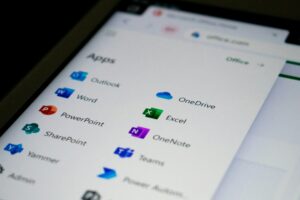Effective communication lies at the heart of successful leadership and management. In today’s dynamic and diverse workplaces, the ability to be clear, concise, and engaging when you communicate, is crucial for building trust, fostering collaboration and driving organisational success.
One valuable tool that leaders can use to enhance their communication skills is DISC® behaviour profiling. By understanding DISC® profiles and their relevance to communication in management, leaders can unlock the potential to inspire, motivate and lead their teams more effectively. As experts in training and business solutions, ATI-Mirage has multiple facilitators who are DISC-accredited and they have designed a workshop that focuses on communication skills using DISC.
Overview: Understanding DISC® helps leaders tailor their communication to those with different communication styles, thereby enhancing effectiveness, teamwork and productivity in the workplace. DISC® identifies four main styles: Dominance, Influence, Steadiness and Compliance. Using this, managers adapt their approach, resolve conflicts and foster collaboration, driving organisational success.
Effective Communication in Leadership and Management
In our experience, effective leadership hinges on the ability to communicate vision, goals, and expectations clearly to team members. In a rapidly evolving business landscape, where teams are often diverse in terms of personalities, backgrounds and communication styles, mastering the art of effective communication becomes even more critical. For us, the DISC® profiling model – essentially a behavioural assessment tool – offers invaluable insights into individual communication preferences, enabling leaders to tailor their approach for maximum impact. However, not all DISC products are created equal! Out of the many different DISC assessment tools available, ATI-Mirage
choose to use Extended DISC or eDISC as it’s also known, because of its validity and reliability.
Understanding eDISC® Profiles
leadership. The 1-day course demonstrates that by reflecting on their own eDISC® profile, managers can gain clarity regarding their own communication strengths and weaknesses. Armed with this knowledge, they can adapt their communication style to suit different situations and individuals, thereby enhancing their effectiveness as leaders and managers.
communication approach to those of their team members.





